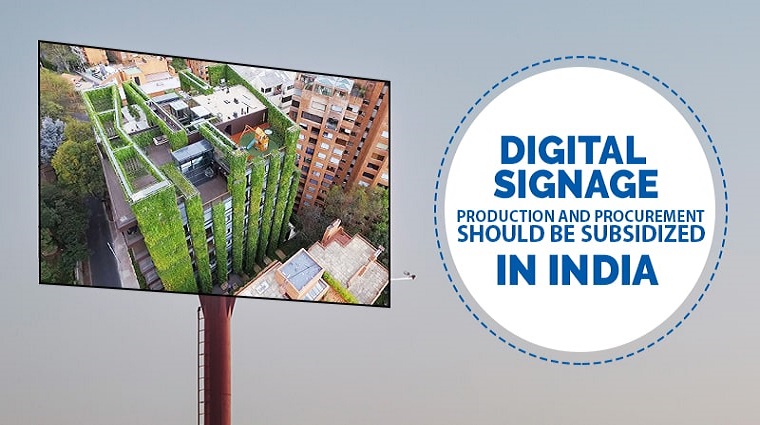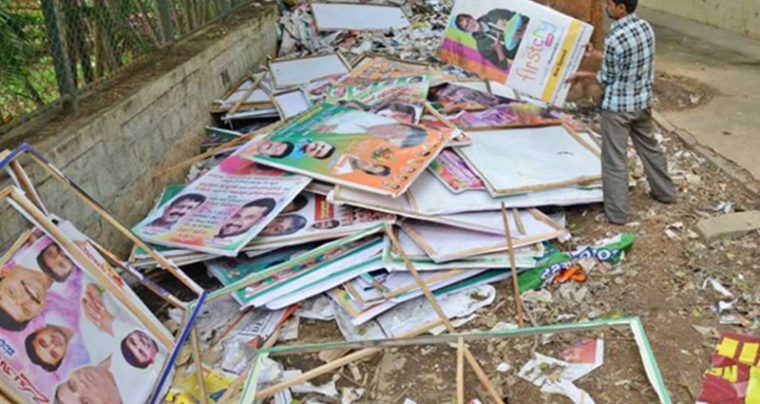Digital Signage Production and Procurement Should be Subsidized in India
by Osel Technology Leading LED Display Manufacturer
Stakeholders in the Indian polyvinyl chloride (PVC) flex
signage industry seem to be driving up wrong path with their exuberance about
future growth of the industry. It has been proven beyond doubt that PVC flex is
one of the most hazardous forms of single use plastic (SUP). The government of
India recently banned six types of SUP products and although PVC flex isn’t
included in that, there’s tremendous pressure for banning it too. That’s because
PVC is considered the most environmentally hazardous form of plastic. Today,
availability of a dynamic alternative like LED
display board has further increased the pressure for a ban on PVC flex.
There’s no
infrastructure for recycling PVC flex signage
The PVC flex signage industry lobby talks about recycling to
press their demand for rolling back the restrictions on their chemically
hazardous product. However, it’s very difficult to recycle it, if at all and
even in a country like the US, less than 3% of PVC flex signage is recycled
with very unsatisfactory results.
o
There’s
no recycling capacity for PVC flex signage in the country and these are burned
in the open after use.
o
It’s
a huge industry now with thousands of stakeholders involved at all levels, directly
and indirectly.
o
They
all combine as a formidable lobby and will try and build pressure on the
judiciary and government.
For the ban on PVC flex signage to be effective the
government must make investment in sustainable alternatives like LED board, easier and subsidize it for
easier adoption of dynamic digital signage by the out of home (OOH) media and
other customers.

Scientific research is
revealing the hazards of PVC flex
Considerable research has already been done on the harmful
effects of PVC flex on human health and the environment. The evidence from such
research suggests that many of the chemicals used in PVC flex have the
potential to disrupt the hormone systems of wildlife resulting in infertility. Thereafter,
reproductive complications increase, resulting in birth defects followed by
developmental challenges for the offspring. If the government is serious about
implementing the SUP ban on PVC flex signage it needs to do more to promote use
of LED display board.
Deny the price
advantage to PVC flex signage
A total ban on PVC flex signage announced abruptly without
any practical alternative at hand is a disruptive exercise with an alarming
impact on the market and beyond. The PVC flex signage industry has grown
tremendously wherein two-thirds of the quantum India uses is now manufactured
in the country. This happened after the government raised tariff on imported
PVC flex signage. Now that the drawbacks of this product is well-known, the
government must incentivize the only alternative – digital LED board, which is import-dependent now.
Subsidize and
incentivize procurement of LED display
board
Sponsor Ads
Created on Feb 13th 2020 04:37. Viewed 606 times.



